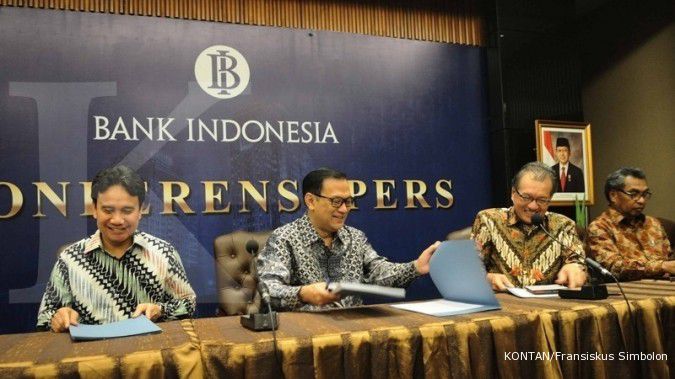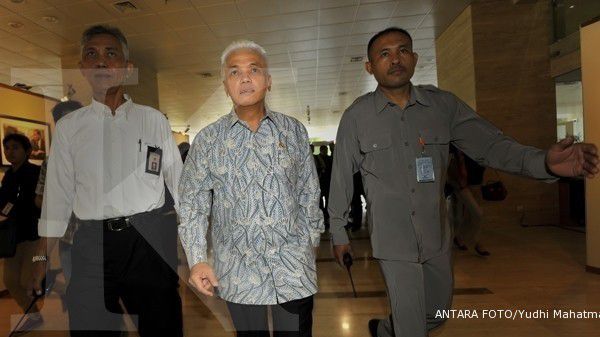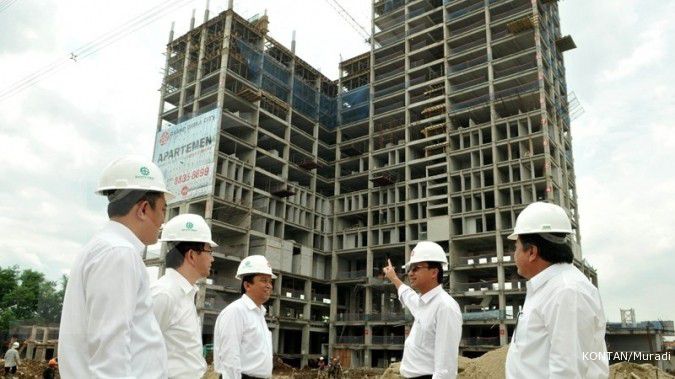JAKARTA. Many international financial institutions and economists still doubt Indonesia's ability to achieve the targeted economic growth of 6 % in the State Revenue and Expenditure Budget (APBN) 2014. However, the government is very optimistic concerning the targeted growth. Thet believed the 2014 general election or Pemilu will boost economic growth .
The reason based on experience of the last two general elections. Economic growth in the election year will be slightly lifted by the presence and activity of the pre-electoral campaign spending. Deputy Finance Minister Bambang Brodjonegoro estimates, this year elections will contribute 0.3% of the 2014 economic growth target.
Indeed, the election activities make consumption rate increases. In addition, government spending in preparation for the 2014 election will make expenditures bigger than usual.
The election means organizers, overnemtn institutions, and parties must spend huge amount of money. Starting from the Election Commission that has a budget of Rp 15.5 trillion, the Election Supervisory Board (Rp 3.3 trillion), the State Police, as well as other agencies, do use election budget. "Central government spending will boost economy," said Bambang.
Within the last eight years, it is common knowledge that the central government spending is low and accumulate at the end of the year. Another consequency, the quality of development project becomes number two, because the important thing is how to spend the state budget first.
Don't be arrogant
Despite the contribution of economic growth electoral activity, economists warned that the government should keep a close watch warning by the World Bank, JP Morgan, and International Monetary Fund (IMF). They estimate, Indonesia's economic growth will slow this year.
According to the World Bank, Indonesia's economic growth in 2014 will only be at the level of 5.3 %, lower than growth realization in 2013 of 5.6 %.
Samuel Asset Management economist Lana Soelistyaningsih argued, the government should look at the results of the analysis of the international financial institutions. Eventhough Lana agrees that elections can support economic growth, she considers the impact is not too great. "Indonesia's economy still faces severe challenges in 2014," said Lana.
One example is a policy that prohibits the export of raw mineral products will degrade the performance of the trade. As a result the trade deficit could swell, local currency exchange will decline and hurt the economy.
Government confident election will boost economy
January 27, 2014, 04.00 PM
/2013/02/18/981693201.jpg)
ILUSTRASI. Ilustrasi Daftar operasi yang ditanggung BPJS Kesehatan. ANTARA FOTO/Akbar Nugroho Gumay/pras.
Reporter: Asep Munazat Zatnika
| Editor: Amal Ihsan
Latest News
-
February 24, 2026, 03.38 PM
Eni to Reach Final Investment Decision for Indonesia Gas Projects Next Month
-
February 24, 2026, 01.00 PM
Asia Stocks Try to Steady after Wall Street Selloff Sims Mood
-
February 23, 2026, 04.50 PM
Wall Street Futures and Dollar Slide on Trump Tariff Tumult
-
February 23, 2026, 02.17 PM
Indonesia's Government Spending Jumps 26% in January 2026
-
February 23, 2026, 01.47 PM
Indonesia's Government Spending Jumps 26% in January
-
February 21, 2026, 06.00 AM
Indonesia's Pertamina to Maintain Bidding Process for US Energy Imports
-
February 20, 2026, 01.23 PM
Indonesia Secures 19% Tariff Deal with US, Palm Oil and Other Commodities Exempt
-
February 20, 2026, 08.33 AM
Indonesia, US Sign Agreement on Reciprocal Trade, Indonesian Ministry Says
-
February 19, 2026, 08.12 AM
Indonesia, Freeport Units Sign MoU to Extend Mining Permit beyond 2041













